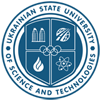Professional Competencies and Job Performance of Select Academic Librarians in Laguna, Philippines
DOI:
https://doi.org/10.15802/unilib/2023_294005Keywords:
academic librarians, professional competency, job performance, PhilippinesAbstract
Objective. Academic libraries formulate missions, visions, goals, and objectives based on the aims of the parent organization. There are issues with how librarianship is introduced, particularly in post-generation Z, when individuals have misconceptions about the functions of librarians. This study examined the level of professional competencies and job performance of selected academic librarians in the 21st Century. Methods. Descriptive-correlation method of research was used to provide static pictures of situations as well as to establish relationship between different variables. The respondents of this study are selected academic librarians in region IV-A Philippines. Results. Findings revealed that majority of respondents were 31 years old and above and were female. Meanwhile, the majority of the respondents attained their bachelor's degree and had been in the service for 10 years and below. The academic librarians are highly competent in managing information technologies among three domains of professional competencies. The academic librarians achieve very high level of job performance maintaining high quantity of work, fulfilling job duties, consistent for high quality of work, respond to the needs of users, provide accurate resources, demonstrate responsiveness, are able to use technology, and actively participate in forums. The academic librarians aged 31 years old and above, with master's degree and have 11 years and above of service, higher level of professional competencies than their younger counterpart, with bachelor's degree and 10 years and below of service. The higher the respondents' level of professional competencies in all its dimensions, the higher the level of respondent’s job performance. Conclusions. It can be concluded that the majority of academic librarians in this study were female, 31 years old and above. They had a bachelor's degree and 10 years or less of service. Academic librarians showed high competence in managing information technologies and consistently performed well in their job duties. Older librarians with a master's degree and over 11 years of service displayed higher professional competency and job performance compared to younger librarians with a bachelor's degree and less than 10 years of service. There was a positive correlation between professional competencies and job performance. Overall, academic librarians in this study exhibited strong professional competencies and high job performance.
References
Adomi, E. E., & Solomon-Uwakwe, B. (2019). Work related WhatsApp groups as knowledge sharing platforms among librarians in selected federal universities in Nigeria. Journal of ICT Development, Applications and Research, 1, 11-19. Retriеved from https://eric.ed.gov/?id=ED597825 (in English)
Alenzuela, R., Cantel, A. M. B., & Peleña, M. C. T. (2020, September-October). Developing a competency index for librarians: Benchmark for capacity building, LIS education, and continuing professional development. In Proceedings of the 9th Eurasian Academic Libraries Conference (pp. 59-73), Nazarbayev University, Nur-Sultan, Kazakhstan. Retriеved from https://hdl.handle.net/20.500.12852/888 (in English)
Anthonia, J., Ibrahim, P., & Lasisi, F. (2021). Digital competencies needed by librarians and information professionals for knowledge management of 21st century university libraries in Borno state. Library Philosophy and Practice (e-Journal). Retriеved from https://digitalcommons.unl.edu/libphilprac/5355/ (in English)
Commission on Higher Education. (n.d). Laguna. Retriеved from http://surl.li/ogjqr (in English)
Douglas, S. & Roberts, R. (2020). Employee age and the impact on work engagement. Strategic HR Review, 19(5), 209-213. doi: https://doi.org/10.1108/SHR-05-2020-0049 (in English)
Friday, J., & Onuh, N. (2022). Acquisition of 21st century librarianship skills by librarians in public university libraries in Bayelsa and Rivers states of Nigeria. Library Philosophy and Practice (e-journal), 7265. Retriеved from https://digitalcommons.unl.edu/libphilprac/7265/ (in English)
Garraido, G. L. (2023). Self-determination theory: How it explains motivation. SimplyPsychology Retriеved from https://www.simplypsychology.org/self-determination-theory.html (in English)
Mandal, S., & Dasgupta, S. (2019). Changing role of academic librarians in 21st century: a literature review. PEARL - A Journal of Library and Information Science, 13(1). doi: http://dx.doi.org/10.5958/0975-6922.2019.00006.8 (in English)
Obille, K. L. B. (2007). An evaluation of standards for academic libraries in the Philippines. Journal of Philippine Librarianship, 27(1&2), 109-150. Retriеved from https://journals.upd.edu.ph/index.php/jpl/article/download/1146/1193 (in English)
Oza, N., & Mehta, M. (2018). A study of ICT skills and competencies essential for corporate LIS professionals. IJRAR- International Journal of Research and Analytical Reviews, 5(4), i596. http://ijrar.com/upload_issue/ijrar_issue_20542611.pdf (in English)
Santos, Y. T. P. (2018). The profile of a modern Filipino librarian: An examination of perceived competencies. International Information & Library Review, 50(4), 276-290. doi: https://doi.org/10.1080/10572317.2017.1409051 (in English)
Sutton, S. W., & Collinge, R. (2018). Competencies for e-resource librarians redux: What do they look like in 2017? The Serials Librarian, 74(1/4), 72-80. doi: https://doi.org/10.1080/0361526x.2018.1428029 (in English)
Ugwu, C. I. (2017). Demographic variables and job performance of librarians in University libraries in south east nigeria. Library Philosophy and Practice (e-journal), 1553. Retriеved from http://digitalcommons.unl.edu/libphilprac/1553 (in English)
Vathanophas, V. (2007). Competency requirements for effective job performance in the thai public sector. Contemporary Management Research, 3(1). doi: https://doi.org/10.7903/cmr.49 (in English)
Verzosa, F. M. (2013). Developing a competency standards for Filipino librarians. Retriеved from http://surl.li/mgcrf (in English)








